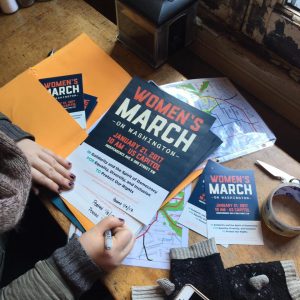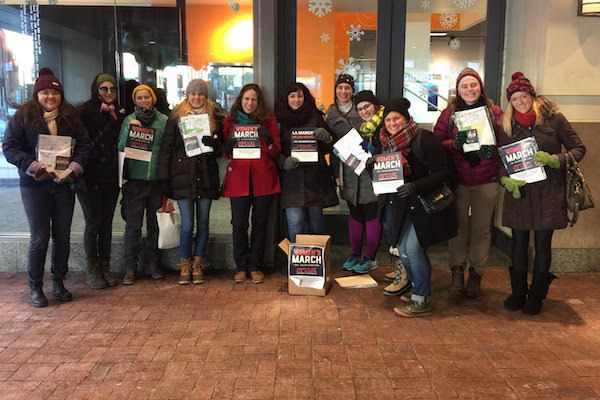The inauguration is on Friday. Yes, Donald Trump will be sworn in as the president of these great United States. But there is something equally as exciting happening the next day.
At 10 a.m. on Saturday, at the intersection of Independence Ave. and Third St. SW in D.C., thousands of people will assemble and the Women’s March on Washington (WMW) will commence. According to the WMW national site, there will be over 600 sister marches both in the U.S. and around the globe, where more than 1 million people will rally.
“It’s really going to be a day where we all stand together, walk together and really make our presence known. And say, ‘hey, hear our voice, we are here and we will continue to be here’,” says Jackie Savage, one of the four D.C. Local March organizers. “And for the local level, I am really motivated to move this beyond the march. The march is just one day. It is not a protest. It is bigger than one person. It isn’t anti-Trump or anything like that. It’s a gathering and a statement to the country and the world that we’re moving forward.”
 The election was this movement’s catalyst. Savage, along with the other three regional leaders Mercy, Mindi, and Tiffany, met through Facebook. Here, group chats became meetings. Now these four women are spreading the message through flyers, social media outreach, the press, campus outreach and even at Monday’s Martin Luther King, Jr Parade in Anacostia.
The election was this movement’s catalyst. Savage, along with the other three regional leaders Mercy, Mindi, and Tiffany, met through Facebook. Here, group chats became meetings. Now these four women are spreading the message through flyers, social media outreach, the press, campus outreach and even at Monday’s Martin Luther King, Jr Parade in Anacostia.
Savage is working to ensure that the LGBTQ community is part of this movement. In addition to sponsorship from queer friendly organizations, D.C. Local has partnered with Ladies of LURe Bare at Cobalt.
The D.C. chapter’s short term goals are to support the march and ensure that the day is a success. “But also one of our short term goals is to use this as an opportunity to pull together and make connections in our city so we can mobilize gracefully with strong diverse leadership,” says Savage. “That’s something that I’ve been really focused on is finding those connections, pulling people in, getting them to the table, having those uncomfortable conversations about race, class, economics, sexual and gender identity, and how those all fit together.”
Savage believes there is much to learn from the women who marched in the ’60s and ’70s, whose work, she says, was successful but also hindered by fractures based on race, ethnicity, and class. “That’s something that I think our generation has to work on, making sure that we are inclusive and it intersects all the issues and ways that we identify as women,” she says.
Although the Women’s March on Washington seems to be for and by women, it is for every human who feels their voices need to be heard. This includes people of color and Native American communities, immigrants, Muslims, the LGBTQ community, everyone.
Savage plans to continue doing this work, and has found herself energized by the impact she and the other organizers have had on their community and the prospect of progress in the future, despite having little time to sleep. The one thing that is keeping her going is hope.
“To quote Star Wars,” says Savage, “revolutions are built on hope.”
Save


